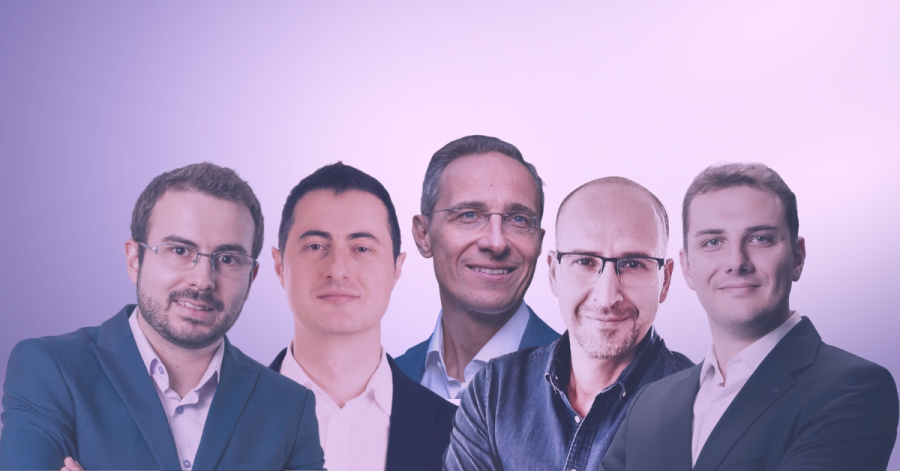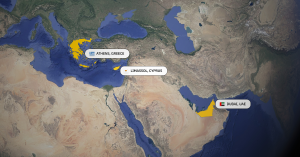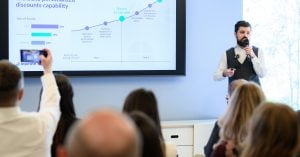Only have 1 minute? Here are 3 takeaways from the piece:
- Bulgarian VC funds report a shortage of quality projects in the local startup ecosystem, attributing this to factors such as lack of commitment and ambition, lack of experienced founders, and the small scale of the Bulgarian market where VCs compete fiercely in a small pool of projects.
- The most underrepresented sectors in the Bulgarian startup ecosystem include consumer apps, deep tech, robotics, biotech, and innovative manufacturing across various industries.
- Closing funding rounds is taking longer due to unstable economic conditions, high inflation, and the reduction in the availability of private capital. VCs are extra cautious and it’s harder for founders to raise money and then get a follow-on investment with limited traction.
Venture capital firms are the lifeblood of the Bulgarian startup ecosystem 2023/2024 and beyond, providing not just funding but also strategic guidance to promising startups. As we navigate through 2023, these firms face new challenges and opportunities. In this second part of our series on Bulgarian startup investment, we delve deeper into these dynamics.
In Part 1, we explored the strategies and future plans of venture capital firms as the Fund of Funds’ investment cycle nears its end. We discussed the unique approaches of five firms shaping the Bulgarian startup investment landscape and their plans for new investments.
Now, we turn our attention to the challenges faced by VCs, the gaps in the Bulgarian startup ecosystem, and the impact of the economic downturn on closing rounds. Again, you’ll find insights from five key players in the Bulgarian venture capital scene: Yavor Gochev from Innovation Capital, Marin Iliev from Vitosha Venture Partners, Yordan Zarev from NV3 Venture Fund, Pavel Velkov from Morningside Hill Capital Management, and Evgeny Angelov, from Silverline Capital.
Navigating the landscape of Bulgarian startup ecosystem 2023/2024
During our in-depth discussions about the Bulgarian startup ecosystem 2023/2024 with prominent Bulgarian VCs, two primary issues stood out: the lack of quality startups and the size of the market, which limits possibilities.
#1 The lack of quality startups
When it comes to quality startups, Yavor Gochev stresses that oftentimes it’s not so much about the idea itself but rather about the founders and their willingness to succeed.
“Given the fact that we are an early stage investor we are usually the first investor outside of family and friends. Usually founders are still developing their startups as a side hustle and often they are not a hundred percent committed”, Gochev says for The Recursive.
According to him, tackling this challenge would require dedicated efforts from different stakeholders within the ecosystem. “We have to screen a lot of startups and ideas in order to find the ones that are most likely to succeed, therefore the more universities teach about startups, the more accelerator programs, events and others are out there, the more teams will be formed and more ideas will be explored”, he comments.
Marin Iliev echoes the sentiment about the lack of quality startups, stating, “The challenges are numerous and of different types: there is a limited number of quality projects, experienced entrepreneurs, potential co-investors and follow-on options, qualified executives and employees for key roles, much less capital to operate with, etc. Overall it’s way harder to find and build potential winners.”
To complete this picture, Yordan Zarev points out the difficulty of finding mature companies to invest in: “Our focus is on investing in slightly more mature companies. However, identifying such companies presents its challenges. Companies that have already achieved a certain level of maturity, some of them being self-funded (bootstrap), and others already profitable, are not easy to come by. Despite their self-sufficiency, some of these companies still require external funding to accelerate their growth or to support their international expansion into other markets outside of Bulgaria”, he says.
Zarev explains that the main challenge they face is finding a high-quality pipeline of startups falling into this specific ‘scale-up’ category that they are interested in. Additionally, he stresses that the market is flooded with funding options as numerous funds like theirs are all pursuing the same promising opportunities. As a result, there is considerable competition among funds for these investments, and they often collaborate and form syndicates to ensure everyone gets a chance to participate.
“However, we’ve observed that some particularly promising startups with experienced founders and a compelling vision tend to approach international funds initially, which have a presence in the local market (like Eleven or LaunchHub). This is natural, given that these international funds typically have a larger ticket size and a broader, more extensive network compared to local funds. If these startups do not find success with the international funds, they then turn to local funds for potential investments”, he continues.
#2 The size of the market
Pavel Velkov points to the scale of the Bulgarian market as a significant challenge. He explains, “It’s relatively small, making it more difficult to find a significant number of compelling investment opportunities. Due to the limited size of the economy and population, it becomes a challenge to identify a large pool of meaningful businesses for investment.”
Velkov says that when they attempt to secure private capital on a deal-by-deal basis, they often have to tap into their international networks. However, this poses its own set of difficulties.
“The stability and security of Bulgaria as a jurisdiction can be perceived as a concern, making it challenging to attract international capital for local Bulgarian companies. Specifically, attracting foreign capital, especially from the US, remains a considerable challenge for Bulgarian startups, particularly when it comes to funding”, he clarifies.
Marin Iliev highlights a similar challenge: “There are things related to the difficulty of building a global business out of our region where on top of all of the other challenges, one has to deal with a tiny and underdeveloped home market, bad reputation among potential clients and partners, etc.”, he says.
Evgeny Angelov also feels like the size of the Bulgarian market poses challenges when it comes to investing in startups that meet their specific criteria. “Our focus lies on more mature companies with several million in revenue. However, the process has not been without challenges, especially regarding compliance with various requirements related to the size and structure of the Bulgarian entity. There are technical issues to navigate, but beyond those, we have observed a significant global re-evaluation of companies and a substantial decline in investor appetite”, he explains.
According to Angelov, this change in investor sentiment is taking longer to fully filter through to early-stage enterprises, and he anticipates that the impact will continue to be felt even into the next year. This has created a timing mismatch for investors like Silverline Capital, and although they wish they had another six or nine months for the investment period, they are satisfied with their current progress. Nevertheless, Angelov encourages companies considering fundraising to act promptly as he believes this year presents a better opportunity for funding compared to what might be a more challenging landscape next year.
Identifying the missing links: Gaps in the Bulgarian startup ecosystem
As we peel back the layers of the Bulgarian startup ecosystem 2023/2024, another important question emerges: What types of startups are noticeably absent or underrepresented?
In summary, the most underrepresented sectors in the Bulgarian startup ecosystem, as identified by our panel of VCs, include:
- Consumer apps
- Deep tech (AI, machine learning, and robotics)
- Biotech
- Innovative manufacturing
- Hardware companies/Big tech firms
Yavor Gochev from Innovation Capital believes that the Bulgarian startup ecosystem is not lacking in terms of sectors. Instead, he emphasizes the need for a systematic approach to creating successful companies across different sectors. The focus, he argues, should be on quantity and creating an environment that fosters the growth of startups.
Marin Iliev from Vitosha Venture Partners, on the other hand, points out that certain sectors are indeed underrepresented. “The ones that are more difficult to do and require specific skills and lots of capital, like consumer apps or deep tech, robotics, biotech, etc. This, however, is typical for smaller and developing markets like the ones in our region”, he tells The Recursive.
Yordan Zarev from NV3 Venture Fund echoes Iliev’s sentiments, expressing a desire to see more startups in the biotech sector, as well as those leveraging big data applications and artificial intelligence. When it comes to biotech, he says “It’s crucial that we strengthen the fundamentals, including education and talent in this field. For example, we already have the INSAIT Institute, which caters to the foundational aspects of artificial intelligence, but we need similar initiatives for biotech.” He also highlights the need for more startups in the cybersecurity sector, given the prevailing geopolitical risks.
Another space that holds significant potential according to Zarev is health and longevity. “Ideally, we should strive to match lifespan with health span, ensuring longer and healthier lives. Unfortunately, we lack a tradition in this area, but it’s something I’m keen to witness more progress in”, he says.
Pavel Velkov from Morningside Hill Capital Management identifies a gap in the market for startups engaged in innovative manufacturing across various industries. He notes that the majority of investment opportunities in the local market are related to software and different software applications.
“What we would like to see more of are manufacturing ventures spanning multiple sectors, especially those involved in automated manufacturing. This includes companies that bring something new to the market, whether through a unique product or a proprietary manufacturing process. We believe there’s untapped potential in areas like white-label manufacturing, where businesses can leverage existing products or intellectual property while incorporating innovative physical manufacturing techniques to produce goods”, he commented for The Recursive.
Evgeny Angelov from Silverline Capital shares that their investment focus is primarily on the B2B software space, which he believes offers a plethora of opportunities. However, he notes a scarcity of hardware companies and big tech firms in the ecosystem. “Although there has been a recent increase in focus on AI, we believe this area holds significant potential for the future development of our market”, he tells The Recursive.
Looking beyond the software and technology sector, Angelov expresses interest in seeing more export-oriented service businesses, particularly outside of the BPO sector, which has faced considerable challenges this year. “We are interested in niche manufacturing companies, but they are not as common. We seek products designed and developed for export markets that are not mere commodities. These are the types of companies that we find particularly attractive”, he continues. However, he laments the lack of opportunities in this domain so far.
The ripple effect: How market conditions impact closing rounds
The current market conditions have led to a noticeable shift in the dynamics of closing investment rounds in the Bulgarian startup ecosystem 2023/2024. The VCs we spoke to have provided a range of perspectives on this issue, reflecting the complexity and diversity of the ecosystem.
Yavor Gochev from Innovation Capital attributes the reluctance of founders to close rounds to the unstable economic situation and high inflation. He observes that founders are weighing the risk of leaving their jobs to become full-time startup founders. “As a VC with a fixed mandate we are not as agile as needed every time in order to be able to provide the right type or amount of funding. If you compare how far EUR 50K could get you to three years ago and now you get the picture”, he explains for The Recursive.
However, he advises founders to be proactive and to explore all opportunities for funding because at the end of the year the investment cycle will end and it will be much harder to raise money at such an early phase.
And when it comes to his specific experience with closing rounds, Gochev says that they haven’t changed their pace of work and are processing every deal according to their internal rules and in orderly fashion. “Usually, if there is a delay it is due to the founders’ inexperience or lack of understanding of how VC works, which is normal, due to the fact that most of them are first time founders”, he explains.
Marin Iliev observes that many founders are deferring fundraising until they can show more progress, making it easier to close a deal and get a sizable amount at a good valuation. According to him, valuations haven’t changed that much in the earlier stages. Rather, it’s just harder to raise and then get a follow-on investment with limited traction without giving up too much ownership.
He also notes that since the market correction that started last year, deals are taking longer to close, not just in Bulgaria but everywhere. “Most of the VCs have slowed down activities and are being extra cautious while many angels have withdrawn altogether so rounds fill more slowly”, he says.
However, he explains that such cycles are normal and they haven’t stopped founders from working on new projects or enhancing their current ones, they just try to bootstrap or work with less resources. “One could argue this is actually healthier than the bubble we had two years ago”, he concludes.
Within the Bulgarian startup ecosystem 2023/2024, Yordan Zarev from NV3 Venture Fund doesn’t see transactions taking longer to close. “It’s a case-by-case scenario, depending on the willingness of both the VC and the founders to secure a deal and make the process smooth”, he explains.
He believes that founders with a clear vision and flexibility would rather seize the investment opportunity available in the market now and begin executing their plans, rather than waiting for potentially better terms or higher valuations in the future.
“If we look back at 2020 and 2021, startup valuations were inflated, quite irrational, to be honest. However, currently, valuations seem more reasonable, although some sectors may still be slightly overvalued, in my view. But ultimately, it’s a matter of demand and supply, and it’s the nature of the game”, Zarev continues.
He doesn’t have concerns about a slowdown in investment activity. “The funds backed by the Fund of Funds have their mandate until the end of this year, and there will be intense investment activity in this space. Additionally, funds financed by the European Investment Fund, such as LaunchHub, Eleven, Invenio and BrightCap, have their mandates and are actively seeking opportunities, not just locally but also internationally”, he says.
According to him, there’s good news for the Bulgarian startup ecosystem, as new programs funded by the EIF and the Fund of Funds will be launched, injecting more capital into the market. However, he notes that this abundance of capital might pose a risk of oversupply, potentially leading to inflated valuations and increased competition among funds for attractive opportunities. Some funds may feel pressured to overlook their investment strategy or discipline in their quest to fulfill their mandate and invest the funds available.
When it comes to founders being reluctant to close rounds at the moment, Pavel Velkov from Morningside Hill Capital Management has observed the opposite trend, with founders being more eager to close investment rounds. However, it has become quite challenging, especially in comparison to the situation two years ago. “It’s important to note that this difficulty is not solely related to valuations. While valuations have indeed decreased from their sky-high levels, they are still relatively high in my opinion. The significant change over the past year and a half is the reduction in the availability of capital, particularly private capital”, he explains.
Velkov has also noticed that investors have become more cautious and risk-averse, seeking a higher margin of safety or larger buffer zones in their investments with private investors, in particular, now being more careful with their capital and selection of investment opportunities. “As a result, it has become more difficult to secure investment rounds at this time. It’s not due to a lack of willingness from founders to close rounds, but rather the challenge lies in finding investors willing to commit capital in the current environment”, he tells The Recursive.
Despite founders wanting to close rounds quicker, Velkov says that in his experience, deals are indeed taking longer to close, primarily due to the increased difficulty in finding private capital. As a result, he believes that the investment landscape is becoming more constrained, and he anticipates this trend to potentially worsen in the upcoming year. While he doesn’t expect capital to become scarce, it will likely be less abundant as investors become even more risk-averse.
“Valuations are still relatively high from my perspective, which adds another layer of complexity to the situation. As a consequence, the combination of limited available capital and elevated valuations contributes to the slower pace of closing deals. We are witnessing a more cautious approach from investors in the current environment, leading to a slowdown in the overall deal-making process”, he concludes.
In the context of the Bulgarian startup ecosystem 2023/2024, Evgeny Angelov from Silverline Capital doesn’t believe that valuations are the primary issue when it comes to founders being reluctant to close rounds at the moment. “While there may be some unrealistic expectations, we observe that the new reality and risk appetite for companies have not fully filtered through yet. Gradually, expectations are aligning more closely with the market conditions”, he tells The Recursive.
For founders who are contemplating whether to fundraise now or wait for a better time, Angelov says it’s crucial to carefully evaluate their cash needs and expansion plans and avoid running out of funds during a potential downturn, as that could have severe consequences.
“It’s essential to remember that valuations are generally declining across the board, which means that there are opportunities to acquire more market share at a more affordable cost”, he explains.
Angelov does find that deals are closing more slowly at the moment and similarly to Pavel Velkov, he also attributes that to the fact that private investors have become more selective and cautious in their approach, taking their time to thoroughly analyze and consider various opportunities. “However, I don’t believe this slowdown is necessarily detrimental to the entire ecosystem. On the contrary, it encourages the community to be more disciplined and focused on the right KPIs, which benefits both the startups and the investors”, he explains.
Angelov believes that while there might be some challenges during this period, it serves as a necessary shake-up that helps the product and the market mature. This is especially relevant in Western Europe and the US, and to some extent, in Bulgaria, but it’s a crucial part of the growth process.








